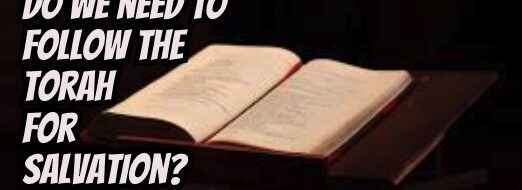Tag Archives: legalism
Do We Need To Follow The Commandments For Salvation?
Do We Need To Follow The Commandments For Salvation?
What Torah Life Ministries Believes
What Torah Life Ministries Believes
Is wearing make-up a sin?
Is wearing make-up a sin?
Are Head Coverings Really Destructive?
Are Head Coverings Really Destructive?
A righteous woman will not take authority over a man.
A righteous woman will not take authority over a man. From Brother Chris Cash
chris@gothisway.org
Return to sound doctrine
A viewer writes me:
But now we are released from the law, having died to that which held us captive, so that we serve in the new way of the Spirit and not in the old way of the written code. Romans 7:6
When I look through your videos, you have much to say about what we must do, and put little emphasis on the Scriptural truths of the gospel, our Savior Jesus’ finished work on the cross. He is my righteousness. Obedience is important, but how is it possible for sinful man to do anything good? Only through the sanctifying work of the Holy Spirit. Why don’t you teach these things? You blast Christians who speak this way as lovers of sin. Far be it! But the right view of self is with great humility. As the hymn goes, “prone to wander, Lord I feel it. prone to leave the God I love”. Praise God that the author of our faith is also our perfector.
And I am sure of this, that he who began a good work in you will bring it to completion at the day of Jesus Christ. Philippians 1:6
You say we can’t pick and choose which commands we keep, when you yourselves do the same things. Return to sound doctrine!
Farmers Market Open Air Preaching West Palm Beach Florida
Farmers Market Open Air Preaching West Palm Beach Florida
Support us: https://www.patreon.com/TorahLIfeMinistries
Bible Sabbath Fellowship Friday June 22nd, 2018 @ 10pm est
Host Paul Nison and 9 other guest fellowship and discuss Torah related topics.
If you would like to be on the panel email me at the website
http://www.TorahLifeMinistries.org contact tab.
The Torah Portion for this week
Torah Portion #39
Hukkat (Numbers 19:1-22:1)
https://youtu.be/NYVPe0XuSMo










